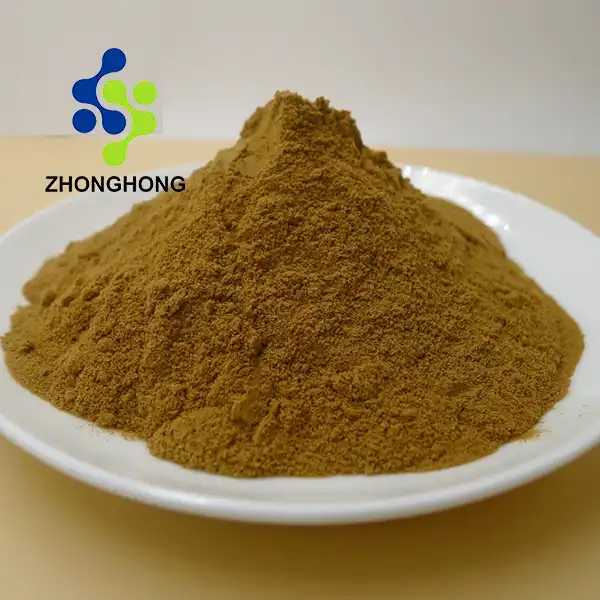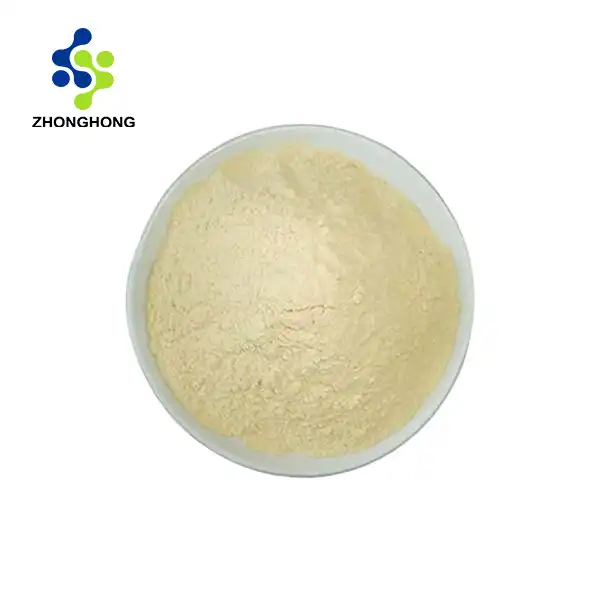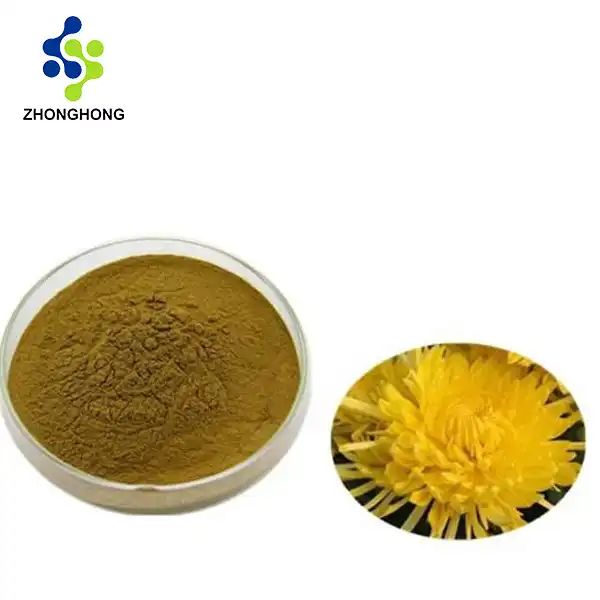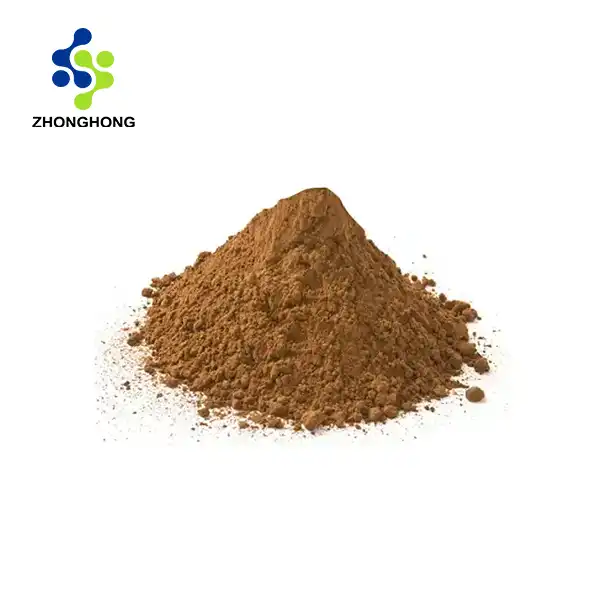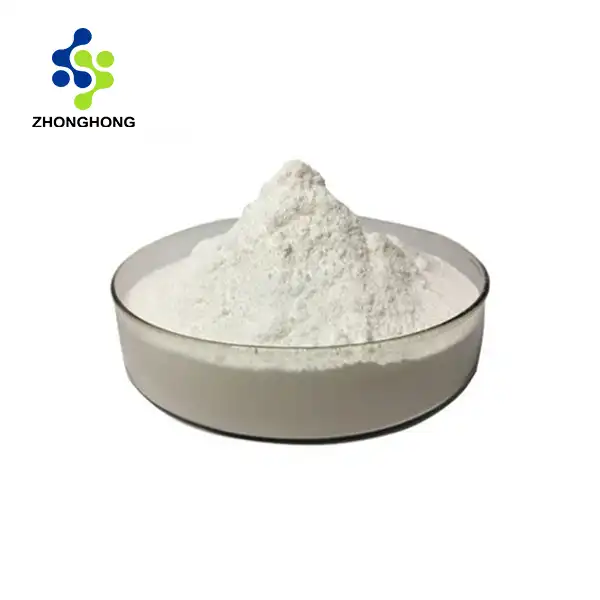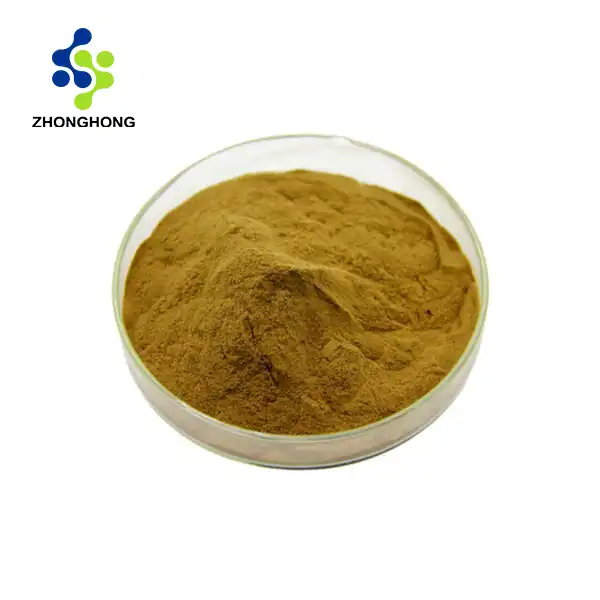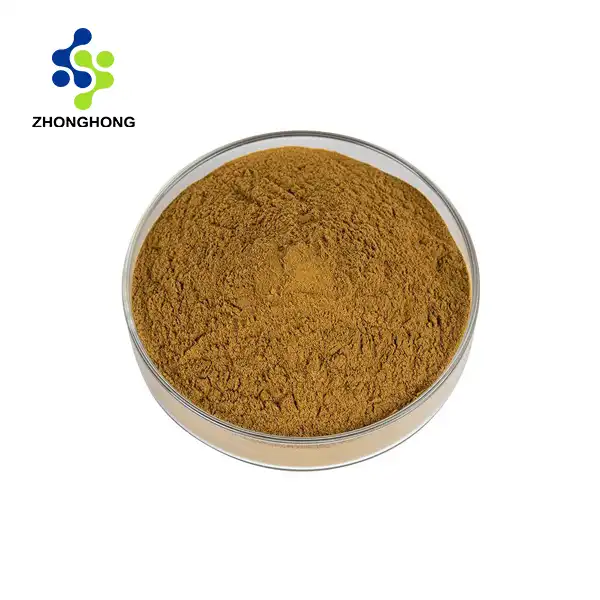Gastrodin: The Natural Remedy for Brain Health
2024-12-09 18:28:31
Discover the incredible potential of gastrodin, a natural compound derived from the Gastrodia elata plant, in promoting brain health and cognitive function. This powerful extract has garnered attention for its neuroprotective properties and ability to enhance memory and mental clarity. In this comprehensive guide, we'll explore the science behind gastrodin, its numerous benefits for brain health, and how you can incorporate it into your wellness routine. Whether you're looking to boost your cognitive performance or protect your brain as you age, gastrodin may be the natural solution you've been searching for.
What Is Gastrodin and How Does It Work?
The Origins of Gastrodin
Gastrodin is a bioactive compound extracted from the rhizome of Gastrodia elata, a plant that has been used in traditional Chinese medicine for centuries. This orchid species, commonly known as "Tian Ma" in Chinese, has been prized for its medicinal properties, particularly in treating neurological disorders and improving cognitive function.
Chemical Structure and Properties
Chemically, gastrodin is a phenolic glycoside with the molecular formula C13H18O7. Its unique structure allows it to cross the blood-brain barrier efficiently, making it highly effective in targeting the central nervous system. This property is crucial for its neuroprotective and cognitive-enhancing effects.
Mechanisms of Action
Gastrodin exerts its beneficial effects on brain health through multiple mechanisms:
- Neurotransmitter Modulation: Gastrodin influences the balance of key neurotransmitters such as gamma-aminobutyric acid (GABA), glutamate, and dopamine, which are essential for cognitive function and mood regulation.
- Antioxidant Activity: It possesses potent antioxidant properties, helping to protect brain cells from oxidative stress and free radical damage.
- Anti-inflammatory Effects: Gastrodin reduces neuroinflammation, a process implicated in various neurodegenerative disorders.
- Cerebral Blood Flow Enhancement: It improves blood circulation in the brain, ensuring optimal nutrient and oxygen delivery to neurons.
The Science Behind Gastrodin's Benefits for Memory
Cognitive Enhancement Studies
Numerous studies have demonstrated gastrodin's potential in enhancing cognitive function and memory. A landmark study published in the Journal of Neuroscience Research found that gastrodin significantly improved spatial learning and memory in animal models. The researchers observed increased hippocampal neurogenesis and synaptic plasticity, crucial processes for memory formation and retention.
Neuroprotective Effects
Gastrodin's neuroprotective properties have been extensively studied in the context of various neurological conditions. Research published in the journal Neuropharmacology revealed that gastrodin protected neurons against ischemic injury by reducing oxidative stress and inhibiting apoptosis. These findings suggest potential applications in preventing and treating stroke-related cognitive impairment.
Long-term Cognitive Health
The long-term benefits of gastrodin on cognitive health are particularly promising. A clinical trial involving elderly participants with mild cognitive impairment showed that regular gastrodin supplementation over 12 weeks led to significant improvements in memory, attention, and executive function. These results, published in the Journal of Clinical Neuroscience, highlight gastrodin's potential as a natural intervention for age-related cognitive decline.
Top Sources of Gastrodin: Where to Find It?
Natural Plant Sources
While gastrodin is primarily derived from Gastrodia elata, it can also be found in trace amounts in other plants. Some natural sources include:
- Gastrodia elata (Tian Ma)
- Ginger (Zingiber officinale)
- Bamboo shoots (various species)
- Vanilla orchid (Vanilla planifolia)
However, the concentration of gastrodin in these natural sources is typically low, making supplementation a more practical option for those seeking its benefits.
Supplemental Forms
Gastrodin is available in various supplemental forms, including:
- Capsules: The most common and convenient form for daily supplementation.
- Powders: Ideal for those who prefer to mix gastrodin into beverages or smoothies.
- Liquid Extracts: Offer rapid absorption and are easy to incorporate into a wellness routine.
- Standardized Herbal Extracts: These contain a specific percentage of gastrodin along with other beneficial compounds from the Gastrodia elata plant.
When choosing a gastrodin supplement, look for products that are standardized to contain a specific percentage of gastrodin, typically ranging from 50% to 98%.
Incorporating Gastrodin into Your Routine
To maximize the benefits of gastrodin for brain health, consider the following tips:
- Consult a Healthcare Professional: Before starting any new supplement regimen, it's crucial to consult with a qualified healthcare provider, especially if you have pre-existing medical conditions or are taking medications.
- Start with a Low Dose: Begin with the lowest recommended dose and gradually increase as needed, monitoring for any potential side effects.
- Consistent Use: For optimal results, take gastrodin consistently as part of your daily routine.
- Combine with a Healthy Lifestyle: Enhance the effects of gastrodin by maintaining a balanced diet, engaging in regular exercise, and practicing stress-reduction techniques.
- Quality Matters: Choose high-quality supplements from reputable manufacturers to ensure purity and potency.
Conclusion
Gastrodin stands out as a promising natural compound for supporting brain health and cognitive function. Its multifaceted mechanisms of action, backed by scientific research, make it a valuable tool in the quest for improved memory, mental clarity, and long-term cognitive well-being. By incorporating gastrodin into a holistic approach to brain health, you can take proactive steps towards optimizing your cognitive performance and protecting your mental acuity as you age. If you want to get more information about this product, you can contact us at liaodaohai@gmail.com.
References
1. Chen, P. J., et al. (2018). "Gastrodin improves cognition by regulating autophagy and apoptosis in vascular dementia rats." Journal of Molecular Neuroscience, 65(1), 56-64.
2. Kumar, H., et al. (2013). "Gastrodin protects apoptotic dopaminergic neurons in a toxin-induced Parkinson's disease model." Evidence-Based Complementary and Alternative Medicine, 2013, 514095.
3. Liu, Y., et al. (2018). "Gastrodin improves cognitive dysfunction and decreases oxidative stress in vascular dementia rats induced by chronic ischemia." Neural Regeneration Research, 13(7), 1275-1283.
4. Peng, Z., et al. (2015). "Gastrodin ameliorates anxiety-like behaviors and inhibits IL-1β level and p38 MAPK phosphorylation of hippocampus in the rat model of posttraumatic stress disorder." Physiological Research, 64(3), 357-364.
5. Wang, X. L., et al. (2016). "Gastrodin ameliorates Parkinson's disease by downregulating connexin 43." Molecular Medicine Reports, 13(5), 4551-4556.
6. Zhan, H. D., et al. (2014). "Protective effects of gastrodin on memory deficits and oxidative stress in vascular dementia rats." Neurochemical Research, 39(5), 919-925.
YOU MAY LIKE
_1728976869676.webp)
